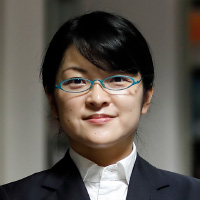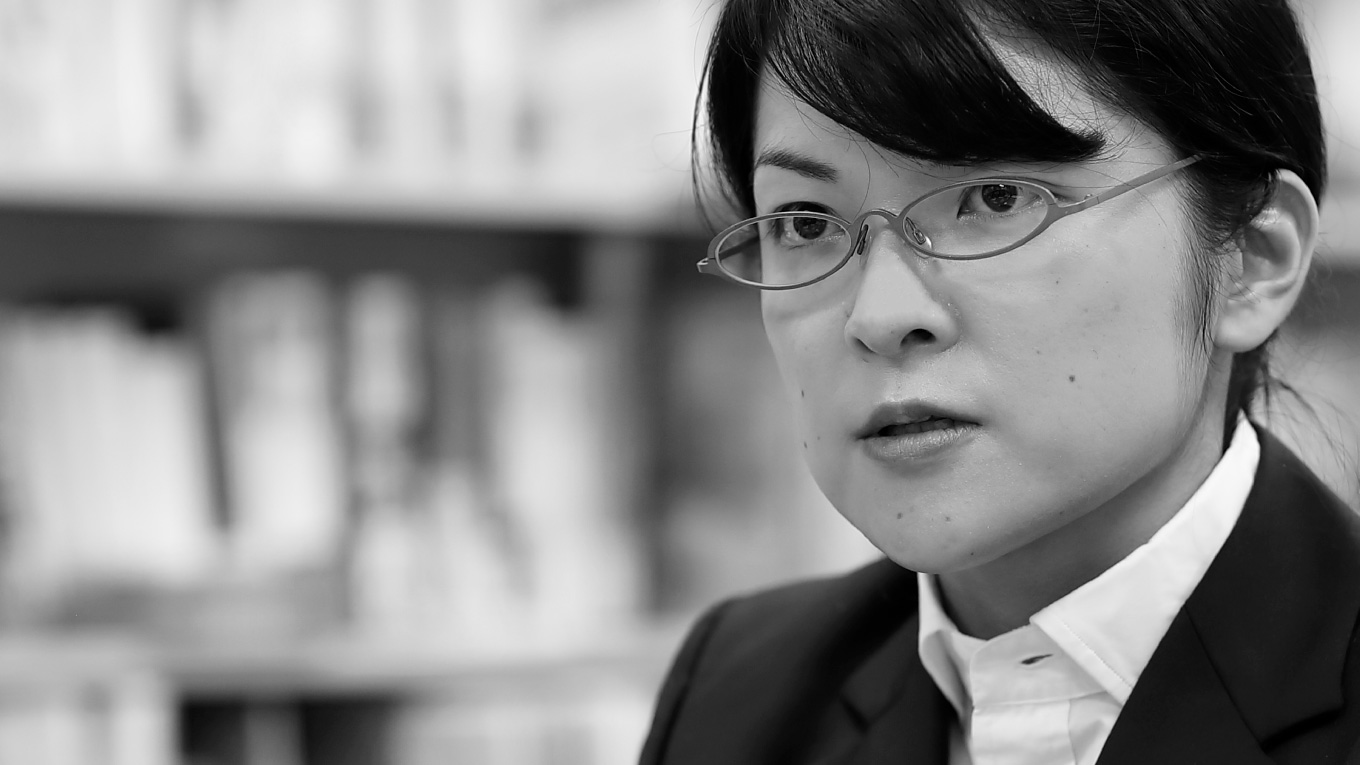Advanced Science and
Technology and Global Law
Nanotechnology, AI, and Robotic Weapons,
How Will the International Community Manage
the Risks of Science and Technology?

KAWAMURA SatokoAssociate Professor,
College of International Relations
Combining Nanotechnology and AI Creates
New Possibilities and Risks for Humanity
What exactly do you mean by risks of advanced science and technology?
KawamuraThere are various fields in advanced science and technology, such as AI, robotics, and space technology. My research focuses on the development and risk management of nanotechnology—technology that deals with extremely small sizes such as one millionth of a millimeter.
Nanotechnology has already become well-known due to cosmetics and materials, but in recent years, it has been combined with robots and biotechnology. For example, development is underway of a technology in which a nano-sized robot enters a human body and infuses a drug at a place where cancer cells are found. While these technologies greatly contribute to humanity, mistakes may pose a great risk to society. Because nanometer-sized robots are so small, researchers are developing technologies that allow them to self-propagate—in other words, to grow of their own accord—to deliver drugs to cancer cells. Could there not be a risk that these robots might leak into the air and multiply in unexpected places and cause damage to humans?
There will be no way to recover after the fact. The development of advanced science and technology must be carried out in tandem with operation and risk management. We must also consider the equitable sharing of benefits among countries. In addition to international agreements, research institutes and private companies that actually carry out technology development also have their own rules for self-regulation in development. I regard these rules as “global laws” created by entities other than the state, and I am conducting research on how they can be utilized in the management of international advanced science and technology.
The Classic International Relations Theme
of Considering Society and Humanity
on a Global Scale
Is this a completely new theme in international relations?
KawamuraIn my research of how political thought and philosophy affect international relations, I came up with the theme of “development of advanced science and technology and risk management.” In order to create new laws, it is necessary to derive rules and principles from political ideas and philosophy. This is because we have to think about how laws have been interpreted in the history of humankind, as well as the value and dignity of human beings.
In order for rules made by entities other than the state to function as social rules, it is also necessary to interpret law from a sociological perspective. The theme of “development of advanced science and technology and risk management” is not only a bridge between natural science and social science, but it also spans various fields within social sciences, and I believe it is a theme that has been built upon over the years.
In fact, in the field of space law, which is one of the international laws, how to manage the responsibility of a state in outer space has long been a major theme. The United Nations is already actively discussing the management of autonomous weapons equipped with AI, which are said to have already been deployed. Considering that the concept of global law has a long history that dates back to the religious laws of the Middle Ages, the theme of “development of advanced science and technology and risk management” could be called a classic theme in the field of international relations, in the sense of considering the relationship between society and humans on a global scale. It is important to utilize the wisdom accumulated from ancient times in the 21st century in which we live.

Could you tell us about your research in more detail?
Kawamura Currently, I am collecting materials and studying the development of legislation in the EU, where regulations on nanotechnology are progressing. I also speak with a variety of researchers, including professors with PhDs in both natural and social sciences. Legislation is being developed in the field of advanced science and technology, particularly in the field of space technology and biotechnology, which are often linked to military technology. While referring this legislation, I am analyzing the current rules in order to identify new challenges and considering items that should be added.
The big challenge now is managing autonomous AI. It is very difficult to say who will be responsible for the consequences of the decisions and actions of AI that are not dictated by humans. Nobody knows what will happen in a society where humans and AI coexist. However, I believe that it is important to create and manage minimum rules while predicting what will happen as much as possible, rather than responding after an incident has occurred. Human beings have developed together with science and technology in society. I would like to conduct research in consultation with people with various standpoints, including scientists and engineers, as well as people from a variety of countries, on the form of future human development in society going forward.
Approaching Problem Consciousness
with a Creative Mindset
Could you tell us a little more about your classes and seminars?
KawamuraIt is a class that traces the roots of how much of a role political philosophy and ideas from ancient Greece play in current international relations. Take, for example, the idea of democracy, which originated in ancient Greece. We examine the history of democracy that led to its current form, as well as the reasons for the rise of populism, which is prevalent in the international community of today. Concerns about populism already existed more than 2,000 years before democracy began. So, we face the same challenges as people 2,000 years ago. My class not only looks at what appears on the surface, but also explores the essence of why these things have appeared.
I also teach global governance classes. These classes look at the activities of the United Nations from an administrative perspective and provide specific information on the work of UN staff and the contents of Security Council procedures. They also cover transnational governance conducted primarily by non-state actors involved in global law.
The theme of my seminar is “international relations meets creativity.” There are many students who try to use creative thinking to approach their own problem consciousness. For example, we have had intellectually stimulating discussions with students who are interested in a wide range of fields, such as global governance in science and technology, changes in what it means to be human due to the development of artificial intelligence, and how to strategically utilize symbols such as culture and women. Just because we are the College of International Relations, it does not mean that all of our students are aiming to secure jobs at the Ministry of Foreign Affairs or international organizations. There are also YouTubers and photographers whose theme is cultural exchange between Japan and Korea. I hope that talent equipped with international relations perspectives will play a more active role both in Japan and overseas.

For Those Interested in Advanced Science and Technology and Global Law:BOOKS
Johan Huizinga
In the Shadow of Tomorrow: A Diagnosis of the Modern Distemper
Cluny Media LLC (2019)
浦沢 直樹 著
PLUTO(全8巻)
小学館(2004〜)
Sherry Turkle
Alone Together
Basic Books (2011)